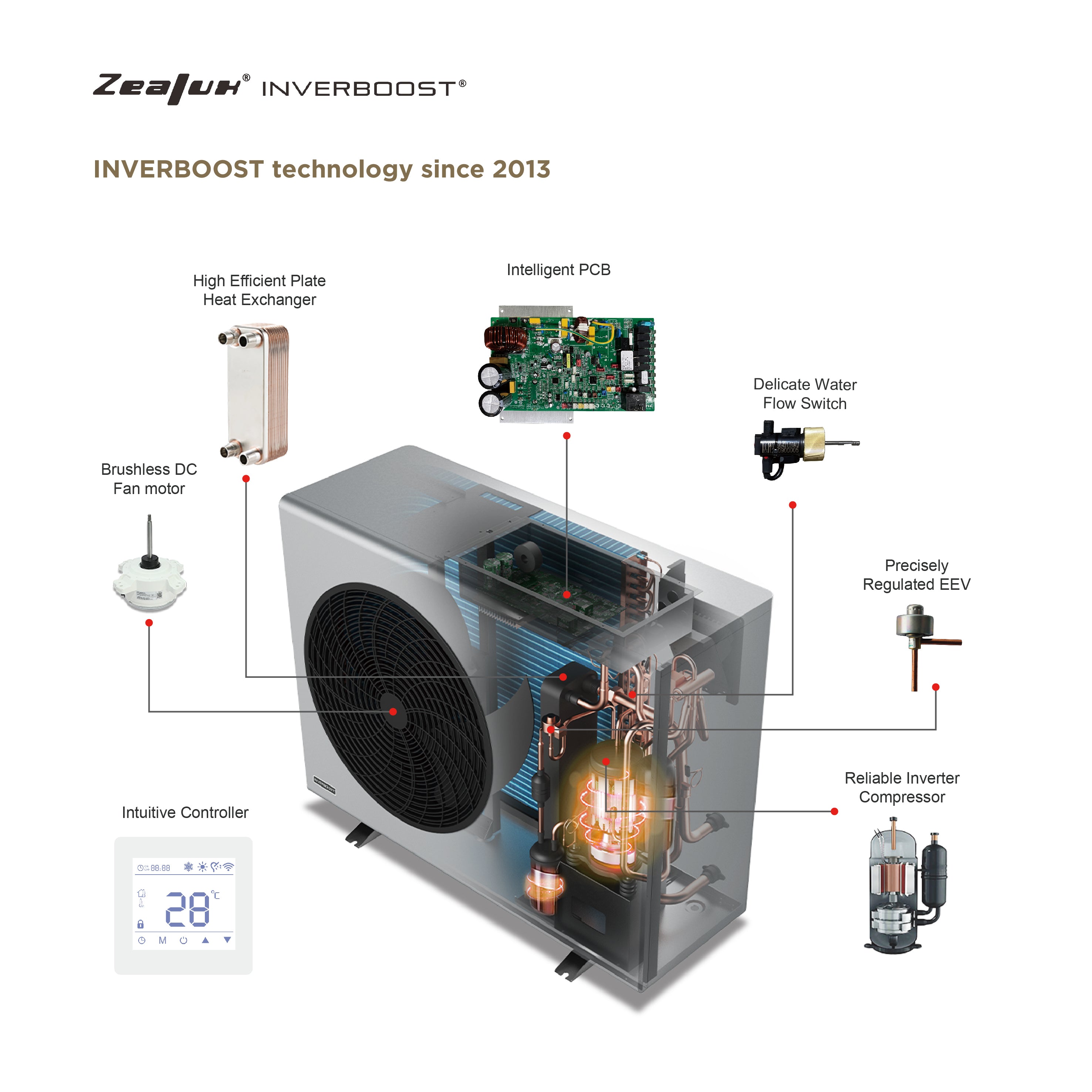Introduction:
In recent years, with the growing concern of environmental protection and energy saving, heat pump technology has become more and more popular as a more efficient and environmentally friendly alternative to traditional heating systems. In this article, we will compare air source heat pumps and boilers in terms of their advantages and disadvantages, to help you make an informed decision when choosing the best heating system for your home or business solution.
Air Source Heat Pumps:
Air source heat pumps (ASHPs) work by absorbing heat from the outside air and transferring it into your home or business. They are powered by electricity, but because they use the outside air as their heat source, they are much more efficient than traditional electric heaters. Here are some of the advantages and disadvantages of air source heat pumps:
Advantages:
Energy Efficiency: Air source heat pumps are much more energy-efficient than traditional heating systems. According to the Energy Saving Trust, an ASHP can save up to £1,400 per year on heating bills, compared to a gas boiler.
Low Carbon Emissions: ASHPs are much more environmentally friendly than traditional heating systems, as they produce much lower carbon emissions.
No Need for Gas Connection:Because ASHPs are powered by electricity and do not require a gas connection, they are a good option for homes and businesses that do not have access to gas.
Cooling Capability: ASHPs can also be used for cooling during the summer months, making them a versatile heating and cooling solution.
Disadvantages:
Initial Cost: The initial cost of installing an ASHP can be higher than that of a traditional heating system, although this cost can be offset by the energy savings over time.
Noise: ASHPs can be noisy, especially when they are running at full capacity. However, newer models are much quieter than older models.
Weather Dependence: ASHPs are less efficient in very cold weather, and may require a backup heating system in extreme temperatures.
Boilers:
Boilers are the most common type of heating system in the UK, and work by heating water which is then circulated through radiators or underfloor heating systems. They can be powered by gas, oil or electricity. Here are some of the advantages and disadvantages of boilers:
Advantages:
Reliable: Boilers are a tried and tested heating system that has been used for many years. They are reliable and require relatively little maintenance.
High Efficiency: Modern boilers are highly efficient, with some models having an efficiency rating of over 90%.
Quick Heating: Boilers can heat your home or business quickly, making them a good option for colder climates.
Low Operating Cost: Boilers are generally cheaper to run than electric heaters, as gas and oil are cheaper than electricity.
Disadvantages:
Carbon Emissions: Boilers produce carbon emissions, making them less environmentally friendly than some other heating systems.
Gas Connection Required: Boilers that are powered by gas require a gas connection, which may not be available in all areas.
Limited Cooling Capability: Boilers are not designed for cooling, so a separate cooling system will be required.
Safety Concerns: Boilers can be dangerous if they are not properly installed or maintained, and can pose a risk of carbon monoxide poisoning.
Conclusion:
Both air source heat pumps and boilers have their pros and cons, and the best choice for you will depend on your specific needs and circumstances. If you are looking for a heating system that is environmentally friendly and energy efficient, then air source heat pumps may be the best choice for you.
Zealux is not only an excellent Heat Pump Manufacturer, but also a reliable partner for home heating.



 ashp manufacturers
ashp manufacturers